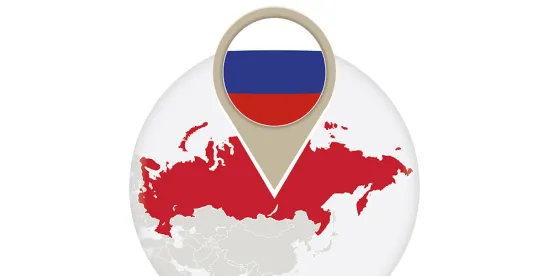This week, the United States imposed new economic sanctions in response to efforts by the Russian Federation to undermine the sovereignty and territorial integrity of Ukraine. As discussed herein, they consist of: (1) an embargo on two separatist regions in Eastern Ukraine, (2) prohibitions on dealing in Russian sovereign debt, and (3) blocking sanctions on additional Russian individuals and entities, including the State Corporation Bank for Development and Foreign Economic Affairs Vnesheconombank (VEB), Promsvyazbank (PSB), and the Nordstream 2 pipeline.
-
EMBARGO OF DNR AND LNR
On 21 February 2022, President Biden issued an executive order that imposes a U.S. embargo of the self-proclaimed Donetsk People’s Republic (DNR) and Luhansk People’s Republic (LNR) in Eastern Ukraine. The scope of this embargo is virtually identical to the embargo of Crimea imposed in 2014 pursuant to Executive Order 13685. Under this new executive order, U.S. persons are prohibited from the following:
-
New investments in DNR and LNR.
-
Importation of goods or services from DNR and LNR.
-
Exportation, re-exportation, sale, and supply of goods services or technology to DNR and LNR, either from the United States or by a U.S. person.
-
Approval, financing, guarantee, or other facilitation of transactions by non-U.S. persons involving DNR or LNR.
While this order principally relates to transactions and activities by U.S. persons, the order authorizes blocking sanctions on non-U.S. persons who “operate” in DNR or LNR. The extent to which U.S. authorities will impose such discretionary sanctions is not yet clear, but caution is warranted.
In conjunction with the executive order, the Office of Foreign Assets Control (OFAC) issued General License 17, which authorizes U.S. persons to “wind down” their affairs in DNR and LNR with regard to preexisting contracts, shipments, and other dealings. It also provides time for U.S. persons to divest or transfer any assets in the region to non-U.S. persons. All such wind-down activities must be concluded by 12:01 a.m. Eastern Daylight Time, 23 March 2022. It is noteworthy that the 30-day period provided by General License 17 is shorter than the 60- to 90-day period OFAC has authorized in the past, which may signal a trend in regard to future Russia sanctions.
OFAC issued five other general licenses that authorize U.S. persons to engage in certain transactions related to DNR and LNR in regard to:
-
Export and re-export of food, medicine, medical devices, and COVID-19-related transactions (GL 18).
-
Transactions ordinarily incident and necessary for telecommunications (GL 19).
-
Official business of certain nongovernmental organizations, aid organizations, and development banks (GL 20).
-
Noncommercial personal remittances to or from DNR and LNR (GL 21).
-
Export of certain services and software for Internet-based communications.
It is important to note that these general licenses only authorize certain transactions that are prohibited by the 21 February executive order. They do not, for example, allow U.S. persons to have dealings prohibited by other blocking sanctions, the Crimea embargo, or sectoral sanctions.
-
RUSSIAN SOVEREIGN DEBT
On 22 February 2022, OFAC issued additional sanctions aimed at limiting the Russian Federation’s ability to raise funds through sovereign debt. Specifically, under the authority of Executive Order 14024 (15 April 2021), OFAC issued “Directive 1A,” which prohibits “U.S. financial institutions,” as defined below, from the following (unless authorized by OFAC):
-
As of 14 June 2021, participation in the primary market for ruble- or nonruble-denominated bonds issued after 14 June 2021 by the Central Bank of the Russian Federation, the National Wealth Fund of the Russian Federation, or the Ministry of Finance of the Russian Federation (please note, this bar was initially put into place under Directive 1 of the order, in April 2021).
-
As of 14 June 2021, lending ruble- or nonruble-denominated funds to the Central Bank of the Russian Federation, the National Wealth Fund of the Russian Federation, or the Ministry of Finance of the Russian Federation (please note, this bar was initially put into place under Directive 1 of the order, in April 2021).
-
As of 1 March 2022, participation in the secondary market for ruble- or nonruble-denominated bonds issued after 1 March 2022 by the Central Bank of the Russian Federation, the National Wealth Fund of the Russian Federation, or the Ministry of Finance of the Russian Federation. In this context, the term “U.S. financial institution” means any U.S. entity (including foreign branches) that is engaged in accepting deposits; making, granting, transferring, holding, or brokering loans or credits; or purchasing or selling foreign exchange securities, futures, or options, or procuring purchasers and sellers thereof, as a principal or agent. Accordingly, it includes depository institutions; banks; savings banks; money services businesses; operators of credit card systems; trust companies; insurance companies; securities brokers and dealers; futures and options brokers and dealers; forward contract and foreign exchange merchants; securities and commodities exchanges; clearing corporations; investment companies; employee benefit plans; dealers in precious metals, stones, or jewels; and U.S. holding companies, U.S. affiliates, or U.S. subsidiaries of any of the foregoing.
-
DESIGNATIONS TO THE SDN LIST
-
Banks and Other Persons
OFAC designated a number of Russian individuals and entities, including certain Russian banks, to the U.S. Specially Designated Nationals (SDN) and Blocked Persons List (SDN List). U.S. persons are barred from engaging in any transaction, directly or indirectly, involving SDNs and the property and property interests of SDNs are blocked (frozen) within U.S. jurisdictions, including any such property that comes within the possession or control of a U.S. person. These restrictions apply not only to parties named on the SDN List but also any entity or property owned 50% or more by SDNs.
Most notably, the newly listed SDNs include two Russian banks, VEB and PSB, and any entity in which VEB or PSB owns, directly or indirectly, a 50% or greater interest.
OFAC issued two general licenses in regard to VEB. First, under General License 2, U.S. persons are authorized to continue dealing with VEB in regard to servicing bonds issued before 1 March 2022 by the Central Bank of the Russian Federation, the National Wealth Fund of the Russian Federation, or the Ministry of Finance of the Russian Federation. Under General License 3, U.S. persons have until 12:01 a.m. Eastern Daylight Time, 24 March 2022 to wind down all other transactions and activities involving VEB.
OFAC has not issued a general license for the wind-down of transactions involving the other Russian banks, individuals, and entities recently named on the SDN List. The listing of banks as SDNs will significantly impact anyone engaging in any transaction involving the banks, including in connection with payment arrangements.
-
Nordstream 2 Pipeline
OFAC designated Nord Stream 2 AG to the SDN List. OFAC also issued General License 4, which authorizes U.S. persons to wind down their preexisting transactions related to the pipeline until 2 March 2022. After this wind-down period, however, U.S. persons, including U.S. financial institutions, will be barred from all dealings involving the pipeline unless and until OFAC delists the pipeline or issues general or specific licenses. This action coincides with steps taken by Germany to halt certification of the pipeline.






 />i
/>i

